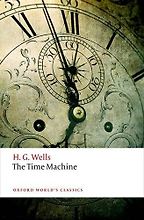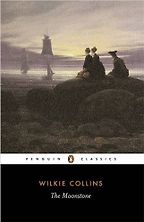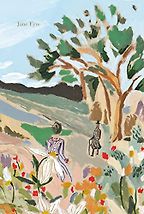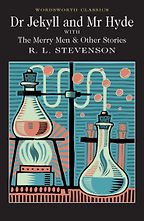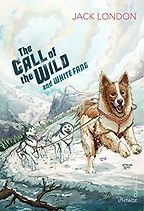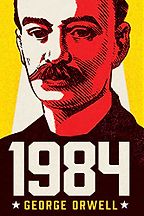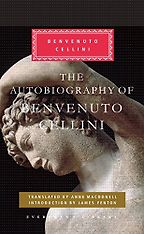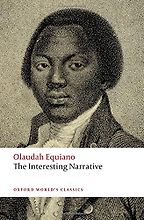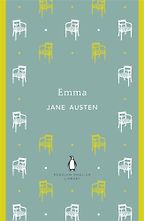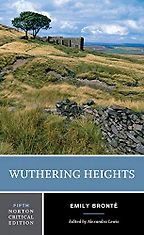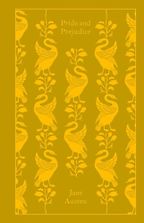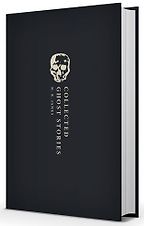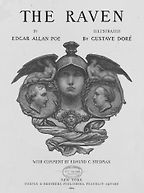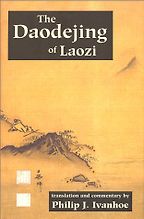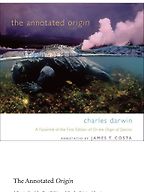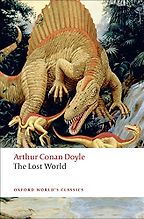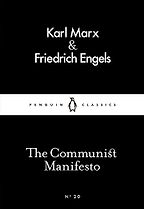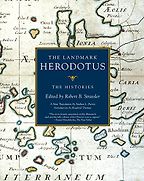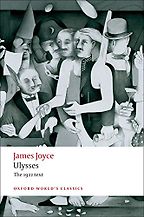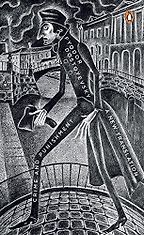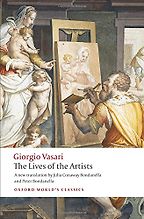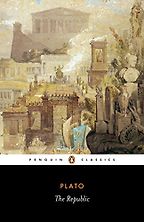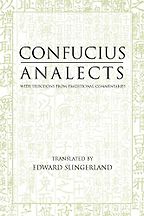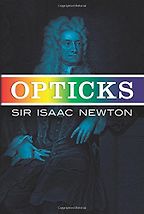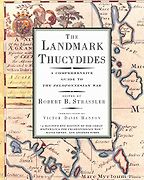Free Ebooks
Last updated: May 20, 2025
To say we live in a golden age for reading would be an understatement: a lot of the most important and entertaining books ever written—from ancient Greek philosophy to Russian novels, from romantic comedies to horror stories—are available completely free as ebooks. Whether you want to read them on your computer or on your phone, on a Kindle or just using the Kindle app, you can read hundred of books not just without breaking the bank, but without spending a cent.
Below we've highlighted some of the books available as free ebooks that have been recommended by experts on Five Books. If you want to read them on your e-reader or Kindle, here are a number of ways of finding them:
1. via Amazon. If you have a Kindle, Amazon make it very easy to read ebooks for free, especially if you already have Amazon Prime membership. Go to the Kindle store on your computer or phone, punch in the title of the book you want, and set the filter to 'price lowest to highest'. (You'll need to reset this filter every time you change the search term, unfortunately). You'll hopefully see the book you're looking for listed for $0.00.
One caveat: anyone can publish via Amazon, so it could be an edition riddled with strange typos. We've noticed that Amazon do an 'Amazon Classics' range of ebooks, free for Amazon Prime members, which seems to have some quality control in place (judging by the books we've looked at so far).
Note: you could search for the book on your Kindle directly, but it's not easy to filter by price, so hard to find that holy grail of 'Kindle Price: $0.00'
2. What happens if you cannot find your ebook for free on Amazon? Don't give up yet. If the book is in the public domain—which most books over a century year old are—the next place to search is Project Gutenberg. This is a wonderful initiative making ebooks freely available. You can read the books online, download them to your computer or device, or download them to your Kindle or other e-reader.
The first step is to go to Kindle's experimental browser. Use it to go to the Gutenberg.org site, search for your book, and download it in the format you want (e.g. Kindle (with images)). Note: this will also work for other e-readers, not just the Kindle.
“This is the novel that inaugurated time travel as a sub-genre. Wells picked up the up-to-date (in the 1890s) scientific speculation about time being a fourth dimension, and ran with it, imagining a machine that could take a man backwards and forwards through time… It is a short novel, almost a novella, but it is smoothly and evocatively written, and it manages to open a chink in the reader’s mind that gives a dizzying, thrilling glimpse down the vertiginous perspectives of long time.” Read more...
Adam Roberts, Novelist
The Moonstone
by Wilkie Collins
Viewed by TS Eliot as the inventor of the modern English detective novel, Wilkie Collins’s books remain some of the best mysteries ever written. Opinions vary whether The Moonstone or The Woman in White is better, one thing is for sure: if you like one, you’ll want to read the other. The audiobook of The Moonstone is really nicely performed by the English character actor Peter Jeffrey (1929-1999).
Narrator: Peter Jeffrey
Length: 18 hours and 45 minutes
Jane Eyre
by Charlotte Brontë
Pictured is the Harper Muse Painted edition of Jane Eyre
Jane Eyre was published in 1847—with the novel's author listed as 'Currer Bell'—and was an immediate commercial success. The main protagonist, Jane, is an orphan who has an extremely tough life before meeting the man of her dreams. Unfortunately, he has dark secrets and the sense of foreboding that pervades the novel makes it also something of a thriller.
“Jane Eyre in some respects…is the original domestic noir…there’s a sense of building threat and building crisis in the book. But I also love the social commentary and the feminism. It’s my favourite book of all time…I read it out loud to my daughter when she was about 15 and it’s just an incredible book” Read more...
Lucy Atkins, Novelist
“Lots and lots of people know the phrase, that ‘Jekyll and Hyde’ means a split personality: good on one side, evil on the other. They might even have seen one or two film adaptations of the book. But I think one of the things that would surprise folk who haven’t read the original book, first of all, is that it’s very short. It’s a novella, only about 150 pages long, yet it’s dealing with such amazingly deep themes.” Read more...
Landmarks of Scottish Literature
James Robertson, Novelist
“London’s prose is passionate and evocative; it transports the reader to the brutal, beautiful wilds of Yukon and the lives and minds of the wolves, dogs, and men.” Read more...
José Castelló, Biologist
Nineteen Eighty-Four
by George Orwell
🎧 Winner of an AudioFile Earphones Award for a truly exceptional audiobook
“This is the ultimate dystopia written by someone who wasn’t just one of the greatest of all journalists, but one of the most prescient…He wrote this book in 1948, when he was dying of tuberculosis, in a great burst of passionate determination, because he could see long before other people where totalitarianism and communism were heading. Animal Farm had told it as a kind of dark fairy-tale, but this was the culmination. The intellectual dishonesty of the Left, which refused to see how evil Stalin was, is despicable, and Orwell was brave enough to stand up to his friends as well as his enemies…His hero Winston, named, of course, after Winston Churchill, is betrayed even by the one person he thinks he can totally love and trust” Read more...
Amanda Craig, Journalist
“It wasn’t published till 1830, but she had the idea and wrote the story when she was nineteen years old, 200 years ago, in 1816…Frankenstein has a reach of imagination that is almost hysterical. She was able to pluck this idea both from her imagination and her understanding of science. She understood what Erasmus Darwin—Charles Darwin’s grandfather—was doing: experiments with electricity and the re-animation of dead objects. She was fantastically well-read, she was terribly intellectual, she was a political radical. She had no truck with modesty and restraint, or doing what was expected of her. She was going to let her imagination go as far as it possibly could. Then she defended it.” Read more...
Sarah Perry, Novelist
“The only autobiography by a major Italian Renaissance artist. We don’t have Leonardo’s, or Michelangelo’s, or anybody else’s memoirs. But we do have Cellini’s, and they are absolutely astonishing. It’s a completely thrilling book, and anybody who loves Italy and Italian art has to read it. I more often than not take it with me when I’m in Florence or Rome, to read passages of it. If a few hundred readers discover this book then we will have done something very, very worthwhile. We’ll have enriched their lives.” Read more...
Five of the Best European Classics
David Campbell, Publisher
The Interesting Narrative
by Olaudah Equiano
This is a fascinating book, a memoir written in the 18th century by Olaudah Equiano. Born in Africa, he was kidnapped and sold into slavery as a child, eventually managed to buy and retain his freedom, and ultimately settled in the UK where he was very active in the abolitionist movement. Reading what it was like being a slave in the 18th century, written by someone who was one, is a transformative experience, and it's no surprise this book has been recommended many times on Five Books.
“You’ve got to have Jane Austen. She’s the first serious novelist. She is treating the novel in a way that we understand and creating an art form. I chose Emma. It would have been easier to choose Pride and Prejudice because it’s everyone’s favourite—it tops polls regularly. But if you want something a little bit more considered… It’s the most mature of the seven” Read more...
Robert McCrum, Journalist
Wuthering Heights
by Emily Brontë
The novel Wuthering Heights, by Emily Brontë, was first published under the pen name Ellis Bell in 1847, just a year before Emily's death in 1848. Below, in our interviews with literary critics and journalists, you'll see why many people still view it as one of the greatest novels ever written in English. Also worth looking at are the contemporary reviews, some of which were found in Emily's desk after her death. These are available on the web (see links below), but are also included in the Norton Critical Edition of Wuthering Heights.
Pride and Prejudice (Book)
by Jane Austen
Pride and Prejudice was published more than 200 years ago, in 1813, but the book still speaks to us across the centuries. Written by Jane Austen when she was only 20, its original title was First Impressions. Like many great books, it was initially rejected by publishers and did not appear till years later, now under the title we know it by, Pride and Prejudice. By then, Austen had already had commercial success with Sense and Sensibility, a novel that also compares and contrasts two characters with the qualities (flaws) signalled in the title of the book.
“I chose the book largely because I think Mark Twain…is a major innovator: he expanded our sense of what the nineteenth-century U.S. novel could do, all while dramatizing how slavery’s legacy persisted into Reconstruction and the Gilded Age—and on into the present day. Almost everything beautiful and troubling about this novel comes back to Twain’s complex decision to focalize a tale of shocking brutality through the perspective of a child.” Read more...
The Best 19th-Century American Novels
Nathan Wolff, Literary Scholar
“This is Plato’s version of Socrates’ court speech. It’s very short, yet it gives us all sorts of extraordinary things. On first reading it is a brilliant piece of forensic oratory…This is so much more sophisticated as writing than most philosophy written today. It’s amazing that 2,500 years ago there were writers around who were better at writing about ideas than just about anyone alive today, even though there are many more philosophers in our era.” Read more...
M M McCabe, Philosopher
” I can barely read these stories myself. It’s the only literature that gives me nightmares. This collection was read to me by a teacher at school when I was eight years old, on dark autumnal Friday afternoons. I re-read them as an undergraduate, and was absolutely terrified once again.” Read more...
Nick Groom, Literary Scholar
“I first came across it when I was nine years old. I still remember this cartoon which had the raven in it. It really affected me because the raven was so sinister and nasty. It really scared me. It was so close to things to do with death and the supernatural. What I was looking at was a cartoon version of Poe’s The Raven. I was so taken by the story I asked my mother to track down the original for me.” Read more...
“For me, the Tao Te Ching is something that’s been monumental in understanding the nuances of human nature. It expresses in 81 principles very complicated beautiful zen prose about life and human nature.” Read more...
The best books on High Performance Psychology
Michael Gervais, Psychologist
“An educated person is someone who knows at least a little bit about the major disciplines in human endeavour. And in biology, this is what you need to know – not only historically but also contemporaneously, because Darwin was right, and still is right, about so many things.” Read more...
Jerry Coyne, Biologist
“One of the aims of my little book On Conan Doyle is to urge people to explore Conan Doyle’s many wonderful non-Sherlockian works. Certainly the one that most people should start with is The Lost World. It introduces Professor George Edward Challenger, a self-important but wonderfully funny and committed scientist who discovers a plateau in a South American jungle where dinosaurs still roam the earth. This is based on some actual historical explorations that were going on at the time. The novel obviously inspired Jurassic Park. It is one of the great classic versions of a lost civilisation.” Read more...
The Best Sherlock Holmes Books
Michael Dirda, Journalist
“I chose The Communist Manifesto, rather than, say, Capital because it shows in a much easier-to-read, shorter work something that is central to Marx’s vision. ..The Communist Manifesto is an early work, published in February 1848, the year of revolutions in Europe, when Marx was not quite 30. The Manifesto shows Marx still thinking within the framework of Hegel’s ideas about contradiction but transforming them from something that’s happening in our consciousness to something that’s happening in the material world.” Read more...
The Best Nineteenth-Century Philosophy Books
Peter Singer, Philosopher
“I like to read Dracula as one of the great novels of London. Stoker himself was an Irish immigrant to London. The Count is a central European immigrant to London. He initially moves to Carfax Abbey, in the suburbs, before gentrifying himself and moving to Piccadilly.” Read more...
Darryl Jones, Literary Scholar
Histories
by Herodotus
We recommend the Landmark edition of Herodotus’s Histories
Herotodus's Histories, which dates from around 425BC, is the earliest continuous Greek text in prose to survive, according to Regius Professor of Greek Emeritus at Oxford University, Christopher Pelling. It's a book that changed the meaning of 'history' forever, because in ancient Greek the word historie suggested ‘enquiry.’ Herodotus was investigating the wonders of the world, rather than writing a history as such.
“The reason I’ve chosen him for Sparta and the Spartans is because he’s the first surviving author who describes the Spartans for us. He doesn’t just talk about them in the Persian Wars, he actually introduces us to the Spartans and tells us about their practices, the different ways their society works and its historical origins. He travelled to Sparta, as well, probably around 450 BC, which makes him quite special for us as a primary source.” Read more...
Andrew Bayliss, Classicist
Ulysses
by James Joyce
Ulysses by James Joyce is one of the masterpieces of modernist literature, a movement at the beginning of the 20th century when the traditional storylines of the Victorian novel were left behind to experiment with new ways of expressing human experience. Though hard to read, those who have made the effort are often enthralled by it and regard it as among the very best books they've ever read. For that reason alone, Ulysses is worth pursuing, possibly with the help of a guide:
War and Peace
by Leo Tolstoy
🏆 War and Peace is one of our most recommended books on Five Books
War and Peace by Leo Tolstoy is regarded by many as one of the greatest novels ever written. In our interviews, philosophers, historians and novelists have recommended it as critical reading for understanding a variety of subjects. Like many great books, it was greeted with some scepticism on publication.
“Tolstoy famously said of War and Peace that it wasn’t even a novel. In a sense, it’s a total history of that epoch in Russia in a fictional form…It’s very interesting what happens with the novel linguistically. There’s been a study of the French words in the novel, because there are a large number, and they feature particularly in the early phases of the novel. Towards the end, the novel becomes more Russian in its literary and vernacular style, in its lexicon and syntax. In a sense, the Russian language is the true character of the novel. The growing Russianness of the language is the epiphany, that moment of self-discovery, that the Russian aristocracy goes through at that time.” Read more...
Orlando Figes, Historian
“There was a real murder in Moscow in 1865, two elderly women killed by axe. Dostoyevsky was deeply moved by this crime. When a writer is deeply moved, he writes a novel. When it is a great writer, the story turns out to be a great novel. Crime and Punishment is on my list because I wrote my own version of the events. In a novel called F.M. (Dostoyevsky’s initials, Fyodor Mikhailovich) I introduce a newly discovered manuscript by Dostoevsky, a first version of Crime and Punishment, and it is a 100% mystery about a serial killer.” Read more...
Boris Akunin, Thriller and Crime Writer
“With Vasari, we begin thinking that artistic biography might matter. As much as we may want to resist the notion that biography is central to understanding art, it seems as though it is just inevitable – the life of the artist is an inevitable element in considering the art itself, as Vasari realised early on.” Read more...
Blake Gopnik, Art Historians, Critics & Curator
“It contains a tremendous amount of nonsense about what the ideal society would be like. But it is an unmissable book because of Socrates. He invented the method of doing and teaching philosophy that has never been improved on. His persistent questions forced people to spell out their beliefs more fully and precisely, often unearthing beliefs they hardly knew they had. He would then challenge them with counter-examples, putting pressure on beliefs by pointing out unwelcome consequences they had. This questioning is often both intimidating and liberating. Those of us who teach philosophy aim, not always successfully, for the liberation without the intimidation…Some of Socrates’s opponents in The Republic challenge him as to whether there is any reason to be moral, apart from social pressures. They use a simple but brilliant thought experiment. Would you have any reason to avoid wrongdoing if you had a ring that made you invisible, so there was no chance of getting caught? It is not the answers given to this and the other questions in the book, but the absolutely fundamental challenges of the questions themselves.” Read more...
The best books on Moral Philosophy
Jonathan Glover, Philosopher
“It’s not written by Confucius himself. It is more a collection of anecdotes of how he engaged his students, almost in dialogue form. And in them, he comes off as a very charming, humorous figure, not at all dogmatic and very modern. I think that’s partly why he’s been so influential. There’s this view that Confucius was a conformist, but that’s partly because of the way Confucianism has been misused throughout Chinese history…The Confucians are not in favour of conformity at all. Indeed one of the most famous sayings from the Analects is: ‘Exemplary persons should pursue harmony but not conformity.’ Harmony really is this idea that you have differences – explained by metaphors like: very tasty dishes composed of many different ingredients that are bland on their own but together they combine to form this delicious dish; or else music, where you have one instrument that sounds OK on its own but when it’s combined with other instruments it produces a beautiful harmony. Confucius himself, if you look at his model as an educator, very much encouraged a constant questioning and constant self-improvement and definitely not a conformist attitude to learning. Rather the opposite I’d say.” Read more...
Daniel A. Bell, Philosopher
“Newton’s a genius whose most obvious contribution to science was to formulate the laws of motion and of gravity and to come up with breakthrough theories about light, colour, vision and so on. But in the Queries to the Opticks he treats these questions as philosophical problems as much as scientific problems. He sees his work not simply as changing the way that scientific inquiry is going to happen for the next 300 years, but also the way that people think about what it means to be human.” Read more...
The best books on The Enlightenment
Sophie Gee, Literary Scholar
“Thucydides is the single best treatment of international relations, foreign policy and military affairs that exists. It is the best description of what life in a multipolar world is like, what politics and war are like for the units involved, of the basic realities of international relations. It has no single line.” Read more...
The best books on US Foreign Policy
Gideon Rose, International Relation
